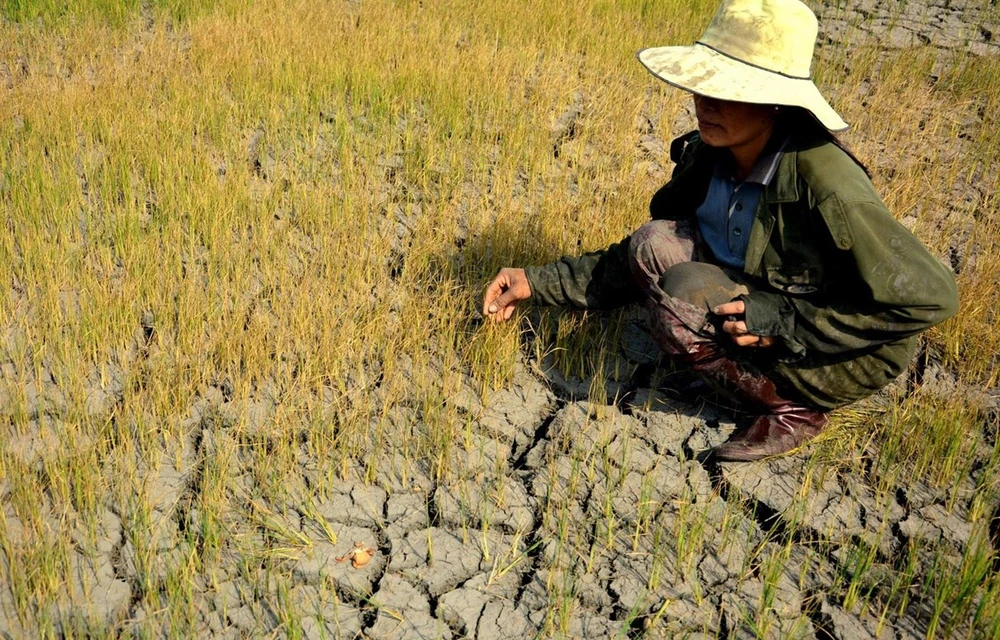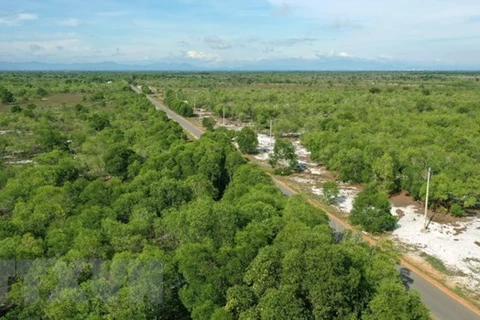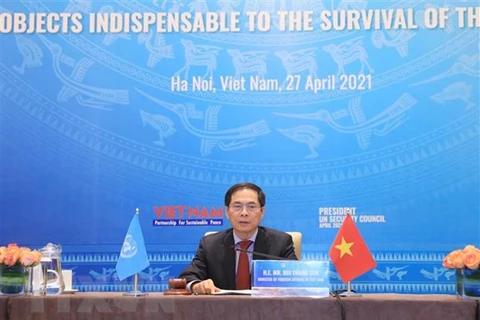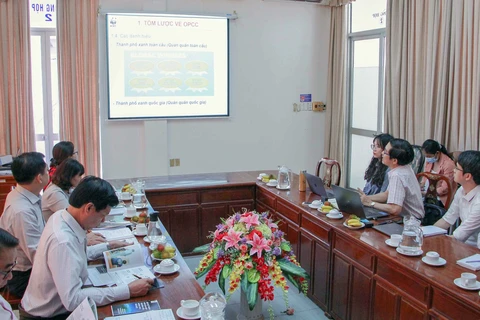
Hanoi (VNA) – Adding the gender issue to climate change policies is crucial to promoting gender equality in Vietnam, according to Deputy Director of the Institute of Strategy and Policy on Natural Resources and Environment (ISPONRE) Nguyen Trung Thang.
“Gender and climate change are cross-cutting issues that need joint effort of all nations and societies,” Thang told a workshop held in Hanoi on April 28 to announce findings of the report entitled “The State of Gender Equality and Climate Change in Vietnam.”
The report was co-launched by the ISPONRE, UN Women and UN Environment Programme (UNEP) to support the integration of gender equality in the climate mitigation and adaptation policies of the country.
The report shows that Vietnam has made efforts to complete policies on gender equality and climate change response but pointed out that women’s participation in policy making and management is limited.
“This report aims to provide a fresh entry to promote gender integration in climate policies in Vietnam which eventually contribute to implementing both Sustainable Development Goal (SDG) 05 – Gender equality and SDG 13 – Climate change,” Trung said.
The Vietnamese Government integrated gender equality and social inclusion in its updated Nationally Determined Contribution, which was submitted to the United Nations Framework Convention on Climate Change in September last year.
Vietnam is among six countries hardest hit by extreme weather that claimed 286 lives and resulted in economic losses of 2 billion USD each year over the last two decades.
As mentioned in the report, the Government of Vietnam submitted an updated Nationally Determined Contribution (NDC) to the UN Framework Convention on Climate Change (UNFCCC) last September, where it committed to increasing its targets for reducing greenhouse gas emissions by 2030.
“More importantly, the updated NDC integrated gender equality and social inclusion issue for the first time, making Vietnam one of the few countries in the world that is addressing gender in its NDC. But doing more is always better,” said Elisa Fernandez, UN Women Representative in Vietnam.
The report provides a gender analysis of the impacts of climate change in Vietnam, particularly in the sectors of agriculture, water management, waste management, and energy, which the country has prioritised. Various policies were also reviewed to determine what mechanisms currently exist to facilitate gender mainstreaming in policy-making and programme implementation.
Among the key findings of the report is that men and women have differentiated capacities as resource users and contributors to the implementation of climate policies.
In the agriculture sector, the gender-based division of labour within the sector and additional responsibilities taken on by women as a consequence of gender norms prohibit their active participation in decision-making inside and outside of their households.
In the water management sector, many national policies see women as one of many vulnerable groups and mainly treat them as beneficiaries, so policies rarely focus on women as potential change agents to preserve water resources.
In the waste management sector, 90 percent of street waste collectors are women whose jobs are not recognised by existing laws because they are considered part of the informal sector.
In the energy sector, most jobs in the manufacturing, construction, and engineering are traditionally seen as suitable only for men, thus women are significantly underrepresented.
Launched under the EmPower project that is jointly implemented by UN Women and UNEP, and supported by the Government of Sweden, the report also offers sector specific recommendations that could inform policies to strengthen gender integration in the implementation of the NDC and updating the National Strategy for Climate Change in Vietnam.
“It is our hope that the key findings of the report as well as the recommendations for these key sectors will be useful for our government partners in ensuring that climate change mitigation and adaptation is gender-responsive, inclusive, and rights-based so we can build a truly sustainable future for this generation and the generations to come,” said Mozaharul Alam, Regional Climate Change Coordinator of UNEP./.
























